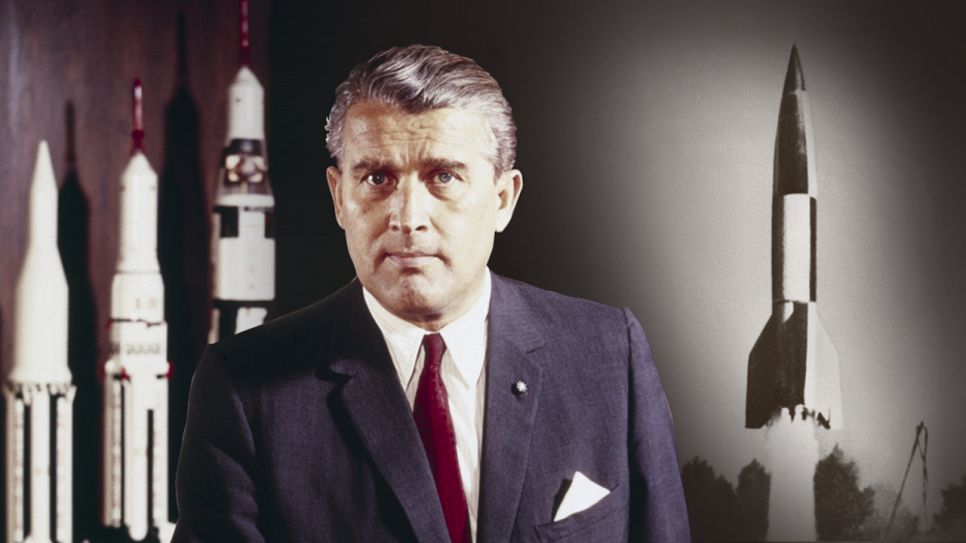Former Nazi, Head of NASA Planning Department: Who is Wernher Von Braun?
Wernher von Braun was kidnapped and taken to the USA with his colleagues by the Americans' secret Operation Paperclip. All his Nazi past was erased and he became an American citizen in 1955. He participated in weapons development activities in the USA.

Von Braun, who was born on March 23, 1912, in what is now Poland, ended his life of missile and space adventure on June 16, 1977, in Alexandria, Virginia, USA.
He introduced humanity to the technology that took the previous studies one step further and took them into space. As in every field, Germany has long been one of the most productive locations of the world's human science, technology, and art heritage. This rich science and technology heritage in Germany hosted numerous developments that would take humanity much further during the Second World War.
His sharp intelligence and unbridled curiosity about rocket and missile technology, evident at first glance, made von Braun the head of German rocket technology in a short time. Working as a civil servant in the Armed Forces Weapons Department (Kummersdorf Testing Center) since 1932, von Braun also carried out pioneering work in the development of liquid missile fuels. In addition to these works, he joined the Nazi Party.
Wernher Magnus Maximilian Freiherr von Braun (23 March 1912 – 16 June 1977) was a German and American aerospace engineer and space architect. He was a member of the Nazi Party and Allgemeine SS, and the leading figure in the development of rocket technology in Nazi Germany and later a pioneer of rocket and space technology in the United States.
Missile technology in Germany reached a previously unimaginable level with the work of von Braun, and the tests and studies were interrupted due to the development of the war against the Germans. In the last years of the war, V-1-2 rockets, which had features approaching a modern missile, stopped due to the bad course of the war, and these works, which were accumulated over the years, reached the desired level after the war, after years of work by the Russians and Americans. These weapons, which German military experts considered as Wonderwaffe weapons that would change the fate of the war, could not provide the expected miracles due to the lack of time for six or seven months.
Loss of the War and Von Braun's US Career
The development of the war against the Germans led the Allies to operations aimed at seizing German technology and its inventors and engineers. These operations turned into a plunder between the Russians and the Germans.
On May 2, 1945, von Braun's brother approached an American unit of the US 44th Infantry Division and said: “My name is Magnus von Braun. My brother invented the V-2. We want to deliver..."
Wernher von Braun was kidnapped and taken to the USA with his colleagues by the Americans' secret Operation Paperclip. All his Nazi past was erased and he became an American citizen in 1955. He participated in weapons development activities in the USA. In 1960, he became director of the George Marshall Space Flight Center in Huntsville, Texas. He worked on the U.S. intercontinental ballistic missile program and the American space program after the Space Race began. Saturn V, the rocket of the Apollo project that enabled sending humans to the Moon, was designed by him. In 1970, he became Head of NASA's Planning Department.
Von Braun's Last Years
After leaving NASA, Wernher von Braun became Vice President of the aerospace company Fairchild Industrial Engineering and Development in Germantown, Maryland, on July 1, 1972. In 1973, during a routine health checkup, kidney cancer, which could not be controlled by surgery in the following years, was detected. Von Braun was invited to speak at colleges and universities and continued his studies whenever possible, to educate a new generation interested in human spaceflight and rockets.
In 1976, Lutz Kayser became scientific advisor to the CEO of OTRAG and was appointed to the board of directors of Daimler-Benz. However, due to his deteriorating health, he was forced to retire from Fairchild on December 31, 1976.
